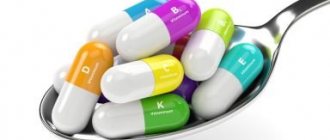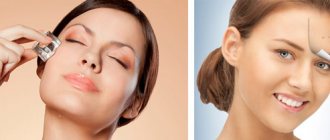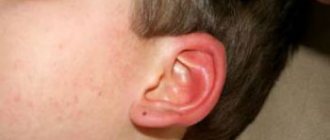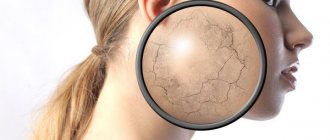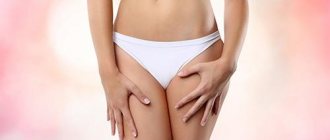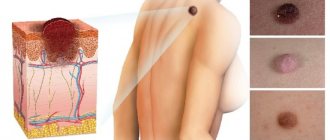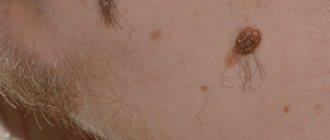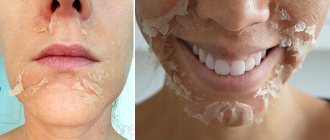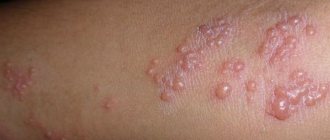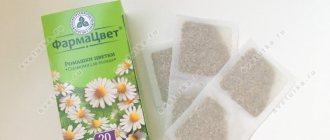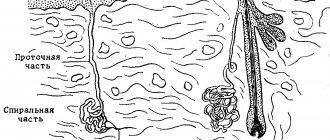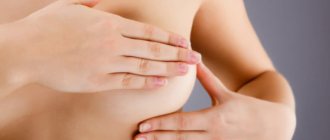Beautiful skin is not only the dream of any woman or girl, but also the best indicator of health. It is no coincidence that we pay so much attention to her condition. We try to take care of her and are very worried if she doesn’t look perfect. Oh, how an open dress emphasizes the beauty of your shoulders and arms. Unfortunately, we often cannot afford a spectacular outfit due to skin problems.
A few tips for caring for problem skin will help you achieve excellent results and improve your mood. Know that everyone faces skin problems throughout their lives, but don't let these problems ruin your mood. The main thing is your faith in yourself and a little patience.
If you have acne on your hands, often they appear in the forearm area, then most likely you are faced with keratosis pilaris. This harmless disease is inherited and is often called “goose bumps.” Red pimples certainly don't make you look better, and they definitely make it difficult for you to look great in short sleeves. But don’t despair, although this disease is quite difficult to treat, still try to improve the condition of the skin on your hands.
How to cure
To cure acne on your hands, you need to sunbathe more and take vitamins A and E orally. In general, it is very important to remember that the condition of your skin depends on nutrition. Eat more vegetables and fruits and try to limit your intake of sweets and starchy foods, and you will notice good results.
Subcutaneous acne can be symptoms of various diseases, so before you buy creams for their treatment at the pharmacy, visit a dermatologist, so you can ensure successful treatment and do not harm your body. The causes of acne can be either hereditary or a manifestation of various diseases: eczema, dyshidrosis, skin infections. The use of creams, masks and ointments gives a rather temporary effect, although quite noticeable. Take care of your health and visit a good specialist, spend more time caring for your skin, only then can you achieve excellent results.
How to get rid of acne
Acne can be a consequence of serious health problems, and then recovery can only be achieved through comprehensive treatment. This may require consultation with both a dermatologist and an endocrinologist or gynecologist. Only a specialist will determine the cause of acne and prescribe competent drug treatment.
After 25
Acne is often associated with puberty, which usually ends by the age of 18-20. However, in some cases it may return after a short or long absence. Depending on the cause of acne, the doctor may prescribe both local and systemic medications (presented in the table below).
| Pharmacological group | Drugs | Description | In what cases is it prescribed |
| Antiseptics | Streptocide; Effezel; Ichthyol ointment; Benzoyl peroxide | They have an antimicrobial effect, disinfecting the skin and preventing the formation of pus. | In the presence of inflammatory elements, with comedones, they are not advisable. |
| External antibiotics | Zenerite; Metrogil; Klenzit S; Levomikol | They affect pathogenic microflora localized in/on the skin. | With II, III and IV degrees of acne. |
| Systemic antibiotics | Tetracycline; Erythromycin; Lincosamides | Suppress the growth and development of a pathogen that has already penetrated into the internal environment of the body. | For III and IV degrees of acne severity. |
| Hormonal drugs (oral contraceptives) | Diana-35; Jess; Janine | They normalize hormonal levels by increasing or decreasing the level of androgens. | With III and IV degrees of acne, less often - II. |
| Retinoids | Roaccutane; Retinol palmitate (vitamin A); Retinoic ointment | Capable of influencing all parts of the pathological process: sebum production, hyperkeratosis and pathogenic microflora. | For stages III and IV acne, when other methods of therapy have not yielded positive results. |
| Combination drugs | Klenzit-S; Epiduo; Isotrexin | Contains retinoids and antibiotics. | At stages II and III. |
Small and large purulent pimples on the face are more effectively eliminated with the help of retinoids and hormonal drugs. In advanced stages, when the infection has penetrated and spread throughout the body, systemic antibiotics cannot be avoided.
After 30-35
Less than 10% of women over the age of 30-35 suffer from acne. This could be a progressive form of “teenage” acne or signs of diseases such as polycystic disease or impaired glucose tolerance.
If the acne is mainly comedones, then topical treatment will be sufficient.
For this purpose drugs are used:
- With salicylic acid. These can be lotions or creams. Helps exfoliate dead skin cells and dissolve acne plugs.
- With antibacterial effect. In the form of gels and creams. They may contain antibiotics or have a bacteriostatic effect (azelaic acid, benzoyl peroxide, other antiseptics).
- Based on hormones. Hydrocortisone ointment and analogues.
For more serious stages of acne, topical medications rarely have a positive result. Therapy is supplemented with hormonal contraceptives (in case of suspected polycystic disease or hyperprolactemia), or systemic antibiotics and retinoids (in case of infection in the blood).
After 40-45
With age, sebum production gradually decreases, but this does not mean that dry skin is less susceptible to acne. If you do not provide the epidermis with additional moisture, the protective barrier against the penetration of pathogens will be damaged.
Pharmaceutical preparations that not only moisturize, but have bacteriostatic and cleansing effects:
- Salicylic acid;
- Metrogyl gel;
- Effezel;
- Ichthyol ointment;
- Hydrocortisone ointment.
During premenopause, hormone replacement therapy is often prescribed. It helps relieve unpleasant symptoms and prevent possible complications.
In adulthood
Over the past decades, the age of acne has increased markedly. If previously young people under 18-20 years of age were susceptible to it, today the age limit has risen to 45 and above. This may be a relapse of a long-existing disease, or a disorder in the endocrine system.
It is recommended to eliminate small purulent pimples on the face using gentle medications that do not have serious side effects.
It can be:
- ointments and creams with antiseptic and antibacterial effects;
- preparations with azelaic acid;
- retinoids.
The use of systemic antibiotics and hormonal drugs by women in adulthood can be associated with health risks.
Watery pimples
If you are experiencing watery pimples on your hands that break out and cause itching, then you most likely have eczema. Remember that this disease is best treated in the early stages, so do not delay your visit to the dermatologist. And, our advice to you, be less nervous, because eczema develops due to nervous disorders.
Our skin consists of microscopic sebaceous glands, and it is important that they function normally, then we will look just great. Already in adolescence we are faced with skin problems. If they are not addressed in a timely manner, then the unkempt appearance of the skin and its poor condition will have a negative impact on well-being and mood. And here it is not far from the development of the complex. Therefore, start taking care of your skin as early as possible. Cosmetic procedures are necessary for problem skin. A dermatologist will tell you how to cure acne, what to do with blackheads and how to take care of your skin.
Make it a habit to dedicate some time to self-care every day. Let it be a pleasant duty. After all, this is the only way you can look fresh and attractive.
Dry pimples on the face
This rash often occurs due to hormonal imbalances. Pimples on the face are small, hard to the touch, have the natural color of the skin or are slightly different in color.
If a rash appears in a girl or woman, it is initially recommended that she consult a gynecologist. He will prescribe a course of hormonal medications that normalize hormonal levels.
Often a dry rash is an allergic reaction to a certain allergen. Allergies periodically appear in adults and often in children at any age. Allergic rashes can be itchy. In this case, you first need to identify the pathogen and eliminate it from your life.
Hormonal imbalance can be triggered by pregnancy, childbirth, menstrual irregularities, taking oral contraceptives, and thyroid diseases.
Folk remedies
A good remedy is tomato juice. Grated potatoes are applied to the skin affected by eczema. Aloe juice has anti-inflammatory properties; it is good to use for pustular rashes on the skin.
Acne on the hands in childhood can be caused by dysfunction of the autonomic nervous system. The sweating of the palms is impaired and, as a result, acne appears on the fingers and feet. Most often, this occurs in the hot season and is treated by prescribing special ointments; do not neglect consulting a neurologist and dermatologist, they will be able to assess the child’s condition and prescribe effective treatment.
What to do with stretched pores
Beauties also often complain that their facial skin is like an orange peel: stretched pores make an unpleasant impression. The phenomenon is usually caused by heredity, but constant exposure to sunlight and age-related changes aggravate the situation.
The pores on the face appear stretched due to insufficient hydration of the skin and the accumulation of dead cells. When they collect around the pores, they become more noticeable, and the dryness of the skin emphasizes the texture. The problem will be solved with proper care:
- The use of products with retinol will accelerate cell regeneration and nourish the deep layers of the skin, which helps improve appearance.
- Glycolic acid removes dead tissue and helps when the skin feels like a peel. At the same time, you will get rid of fine wrinkles, so the improvements will be comprehensive.
- Hyaluronic acid reduces dehydration and increases skin elasticity, which helps hide pores.
Retinol and glycolic acid not only have a positive effect, because after their use the skin is exposed to ultraviolet rays. To neutralize the effect, use products with vitamin C and SPF protection with a level above 30.
Causes
If you are worried about blackheads, acne, red pimples on your arms and back, then perhaps you should pay attention to your lifestyle. Your daily routine is just as important to your health as proper nutrition. Any disturbance in the functioning of internal organs can cause deterioration of the skin condition. Don't forget that fresh air and moderate physical activity have a beneficial effect on the functioning of the nervous system, which means that the condition of your skin directly depends on your lifestyle. Bad habits, addiction to flour and sweets will not only add extra pounds to you, but will also ruin the condition of the skin of your face, shoulders, and arms.
The reasons may be different, but we have the power to get rid of them. Timely contact with specialists and constant care can improve your appearance and increase your self-esteem. Nothing lifts your spirits like admiring glances. You deserve to be beautiful, so put at least a minimum of effort into it and the result will certainly please you.
The modern world is changing rapidly and standards of beauty are not eternal, but beautiful, and, most importantly, healthy skin always deserves recognition. May self-care give you true pleasure. Discover the world of pleasure and beauty and you will take your rightful place in it. Do not use strong medicated creams without consulting a specialist, it may be dangerous to your health. Do not neglect prescribed procedures and treatment. You can achieve good results only with constant care. Be beautiful, be yourself.
Nutrition and lifestyle
Treatment of acne and acne comes down not only to medications and cleansing the skin. It is also necessary to reconsider the diet and the presence of bad habits, which can become a decisive factor in the progression of the disease.
For effective treatment and prevention of acne, you must follow a few simple rules:
- Daily skin care. Use cleansing lotions and tonics based on your skin type. For combination and dry skin types, do not use products for oily skin. Regularly apply disinfectant facial lotions.
- Eliminate sweets, flour and high-fat foods from your diet. Acne is often caused by foods with a high glycemic index. The exception is durum wheat.
- To give up smoking. Nicotine destroys collagen fibers, reducing skin elasticity and its protective properties.
- Touch your face with your hands as little as possible.
- Drink 1.5-2 liters of water per day.
A healthy and active lifestyle will not cure acne on its own, but with proper treatment it can speed up the healing process at minimal cost to your health.
Acne or inflammatory skin disease affects women of all age groups. However, most often it first appears during puberty and can recur throughout life.
Small purulent pimples appear both on the face and other parts of the body, and then a severe stage of skin damage is diagnosed. Acne treatment is effective after determining the cause of its occurrence and the severity of the condition.
